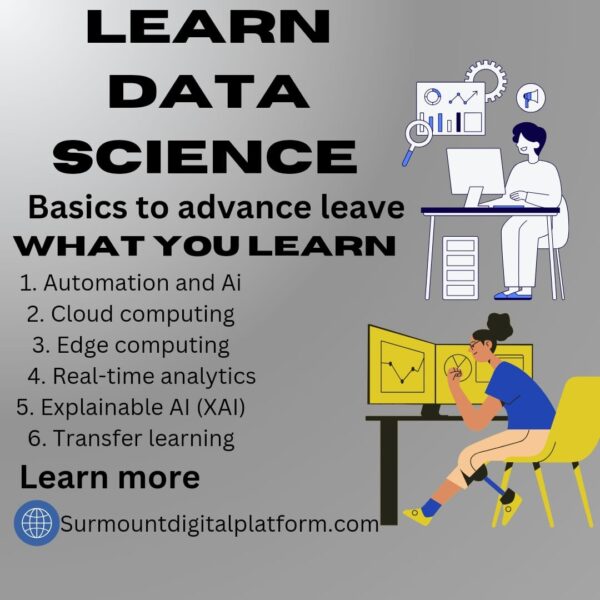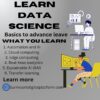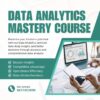Description
Data science encompasses a wide array of techniques and methodologies aimed at extracting insights and knowledge from data. Here are some key points that define the field of data science:
1. *Data Collection and Cleaning:* Data scientists collect raw data from various sources such as databases, APIs, or IoT devices. Cleaning and preprocessing the data is crucial to ensure its quality and reliability for analysis.
2. *Exploratory Data Analysis (EDA):* EDA involves initial exploration of the data to understand its structure, distribution, and relationships. Techniques like summary statistics, data visualization, and dimensionality reduction are employed here.
3. *Statistical Analysis:* Statistical methods are used to quantify and validate hypotheses drawn from data. This includes hypothesis testing, regression analysis, and clustering to uncover patterns and correlations.
4. *Machine Learning (ML) and Predictive Modeling:* ML algorithms are applied to build models that can make predictions or decisions based on data. This includes supervised learning (classification, regression), unsupervised learning (clustering, dimensionality reduction), and reinforcement learning.
5. *Big Data Technologies:* Handling large volumes of data requires expertise in big data technologies such as Hadoop, Spark, and distributed computing frameworks like MapReduce to process data efficiently.
6. *Data Visualization:* Communicating insights effectively is crucial. Data visualization techniques using tools like matplotlib, seaborn, or Tableau help in presenting complex data in a clear and understandable manner.
7. *Domain Knowledge:* Understanding the domain where data is generated is essential for interpreting results correctly and making informed decisions based on data analysis.
8. *Ethics and Privacy:* Data scientists must adhere to ethical guidelines regarding data privacy, security, and bias mitigation. Ensuring fairness and transparency in data-driven decisions is critical.
9. *Continuous Learning and Adaptation:* The field of data science is dynamic, requiring continuous learning of new techniques, algorithms, and tools to stay updated with the latest advancements.
10. *Business Acumen:* Data scientists collaborate closely with stakeholders to align data-driven insights with business objectives, driving strategic decisions and innovation within organizations.
Data science combines elements of statistics, computer science, domain expertise, and critical thinking to extract meaningful insights and solve complex problems from data, making it a vital discipline in today’s data-driven world.










Reviews
There are no reviews yet.